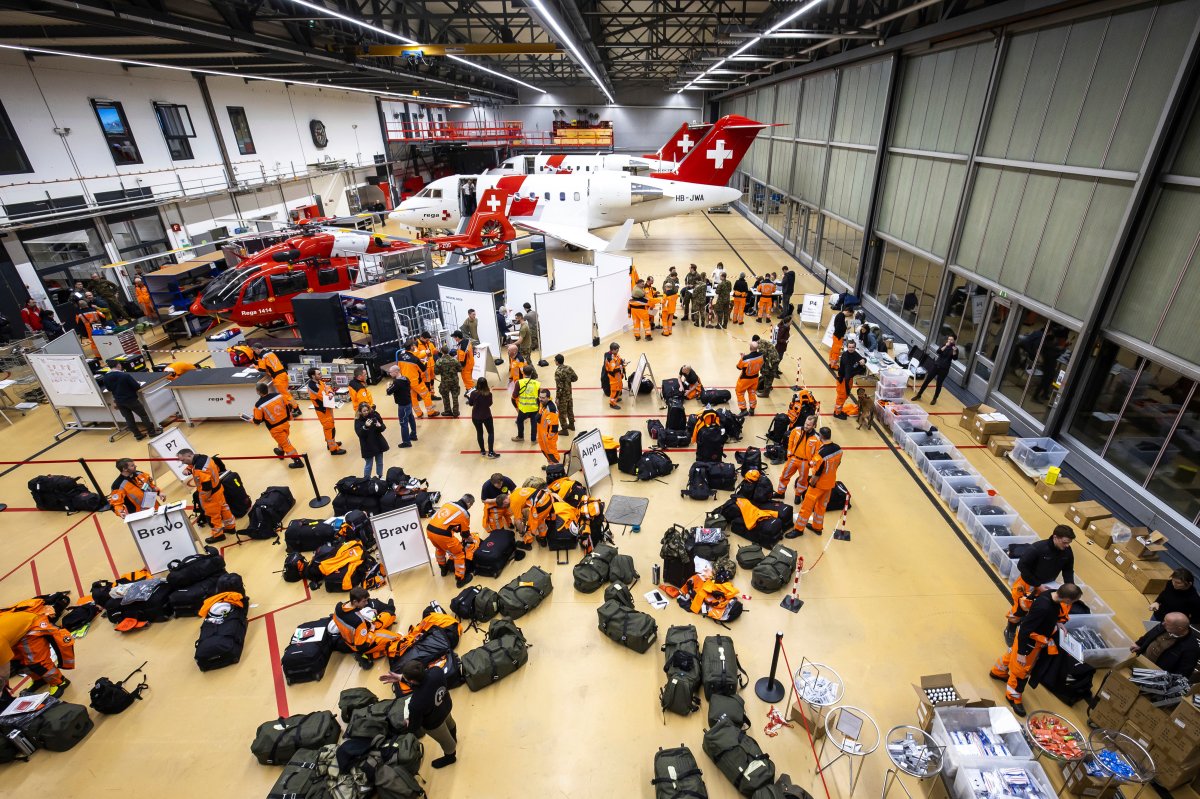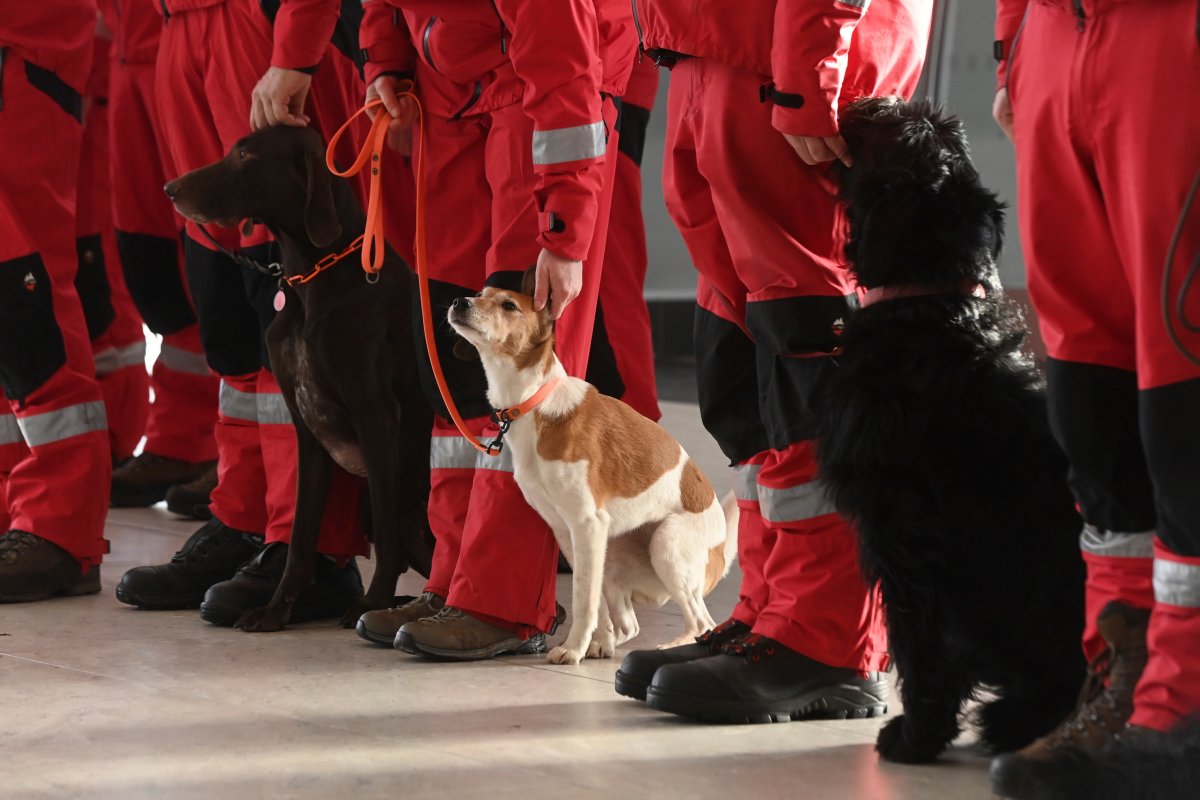EDITOR’S NOTE: An update added into this file late Wednesday evening stated Canada has deployed DART to Turkey. That was not correct. International Development Minister Harjit Sajjan announced a military assessment team is being deployed, which is not a guarantee that DART will follow. This story has been updated again to correct that information.

As rescue crews from around the world scramble to find survivors buried under wreckage wrought by a massive earthquake in Turkey and Syria, Canada is still “looking” at how to help, Prime Minister Justin Trudeau says.
The death toll has topped 11,000 since a 7.8 magnitude quake — and its powerful aftershocks — reduced thousands of buildings to rubble in the region. Rescuers have rushed to pull people from the destruction, but as more time passes, calls for help from under the rubble have begun to grow silent.
On Tuesday, the federal government committed to sending $10 million in initial, direct aid to the countries — money Trudeau says is already flowing. The next day, he also promised the government would match up to $10 million of Canadians’ donations made to the Red Cross.

You can make a donation online at donate.redcross.ca.
However, as other countries quickly suited up their rescue crews and flew them into the disaster zone, Canada’s leadership on Wednesday continued to say they are weighing their options when it comes to getting boots on the ground.
“From the very beginning we’ve been talking with our diplomatic staff, our counterparts over there, working with the international community on getting as much help as needed the right way there,” Trudeau said, speaking to reporters as he headed into a caucus meeting on Wednesday.
“We are there to help, we’re just looking at how to best do it.”
What have other countries done so far?
Countries around the world sprang into action after the deadly earthquake rocked Syria and Turkey, committing not only dollar figures but also search and rescue crews and gear, according to Reuters.

Australia made a promise similar to the one Canada outlined on Tuesday, pledging to provide AUD$10 million (CAD$9.3 million) to the region. But it also promised to deploy an urban search and rescue team of up to 72 people to Turkey, with the aim to have boots on the ground by the end of the week.
Two U.S. Agency for International Development teams — each comprised of about 80 people plus search-and-rescue dogs — are on their way to Turkey.
The U.K. also sent 76 search and rescue specialists with four search dogs, as well as rescue equipment.
China’s team of 82 earthquake rescuers and four search dogs arrived in the region on Wednesday, according to the country’s state broadcaster.
India, meanwhile, has sent two teams of 100 people from its National Disaster Response Force, as well as dogs, equipment, relief material and medical teams. Neighbouring Pakistan said it was sending two C-130 planes with relief supplies and 36 search and rescue personnel.
Japan sent piles of equipment to affected areas and sent dozens of people from its rescue teams. Poland, Taiwan and Switzerland all did too.
Qatar, Iraq, the United Arab Emirates, Russia, Greece, Israel and Spain all have either already sent or pledged to send rescue teams or military members, in addition to a smattering of other kinds of aid.
Saudia Arabia has ordered an air bridge to provide aid to the region. Germany is providing camps with emergency shelters and water treatment units. It’s also preparing relief supplies with emergency generators, tents and blankets, in coordination with the Turkish authorities — and promises to do more.
The European Union’s 24-7 Emergency Response Coordination Centre has activated its emergency Copernicus satellite mapping service to help first responders.
Finland said rescue experts would be sent to Turkey as part of this EU aid.

The World Health Organization said its network of emergency medical teams has also been activated to provide essential health care for the injured and most vulnerable.
Ukraine and Italy’s leadership have both said they’re standing by, ready to provide support. Even the Italian Roman Catholic Church has gotten involved, with a pledge to allocate 500,000 euros (CAD $720,540).
Canada sending team to weigh in on situation
On Wednesday evening, International Development Minister Harjit Sajjan announced Canada was sending a military assessment team to Turkey. He said Global Affairs officials and would determine how Canada can contribute to earthquake relief efforts.
The Disaster Assistance Response Team is the Canadian Forces’ international emergency response crew and was deployed with roughly 200 crew members to Nepal in 2015 in response to a 7.8 magnitude earthquake there.
The team also deployed to Haiti after the devastating 2010 earthquake.
However, a senior government official who spoke on background ahead of Sajjan’s confirmation underscored that the deployment of the team does not automatically guarantee a further deployment of Canadian resources to the country.
A search and rescue team from the B.C. city of Burnaby has also been deployed to help with the efforts in Turkey, sending 10 volunteers.
Both humanitarian workers and Turkey’s ambassador to Canada have made it clear they hope to see more aid flow to the region.

Shortly after the initial $10 million in aid was announced on Tuesday, Save the Children’s head of humanitarian affairs Dalia Al Awqati told Global News she looks forward to “continued commitment and support” from the Canadian government.
“It is really good news that the Government of Canada has committed the money,” she said. “It’s important to keep that door open as well. I would say we’re probably going to need to see more.”
Kerim Uras, Turkey’s ambassador to Canada, thanked Trudeau on Wednesday for his commitment to match donations to the Red Cross.
“Thank you for your kind support in our time of need,” he wrote on Twitter.
Speaking in an interview with Global News on Tuesday, Uras said he is “not in a position to tell what Canada should give or should not give.”
“We would wish more to be done by everyone because this is a humanitarian issue,” he said.

Canada is currently conducting a “needs assessment” to determine what the next steps should be, Sajjan said as he left a cabinet meeting in Ottawa on Tuesday.
“We’re also looking at various other options — medical teams, heavy urban search and rescue — and I know that also Minister Anand is looking at options for the (Disaster Assistance Response Team) DART as well,” Sajjan said.
Right now, however, no the federal government has not sent any teams — but “nothing” is off the table, the minister said.
— with files from Reuters
Corus Entertainment, the parent company of Global News, is supporting the Humanitarian Coalition in its appeal to help victims of the devastating earthquake in Turkey and Syria. Donations can be made online.
- What is a halal mortgage? How interest-free home financing works in Canada
- Ontario doctors offer solutions to help address shortage of family physicians
- Capital gains changes are ‘really fair,’ Freeland says, as doctors cry foul
- Budget 2024 failed to spark ‘political reboot’ for Liberals, polling suggests








Comments